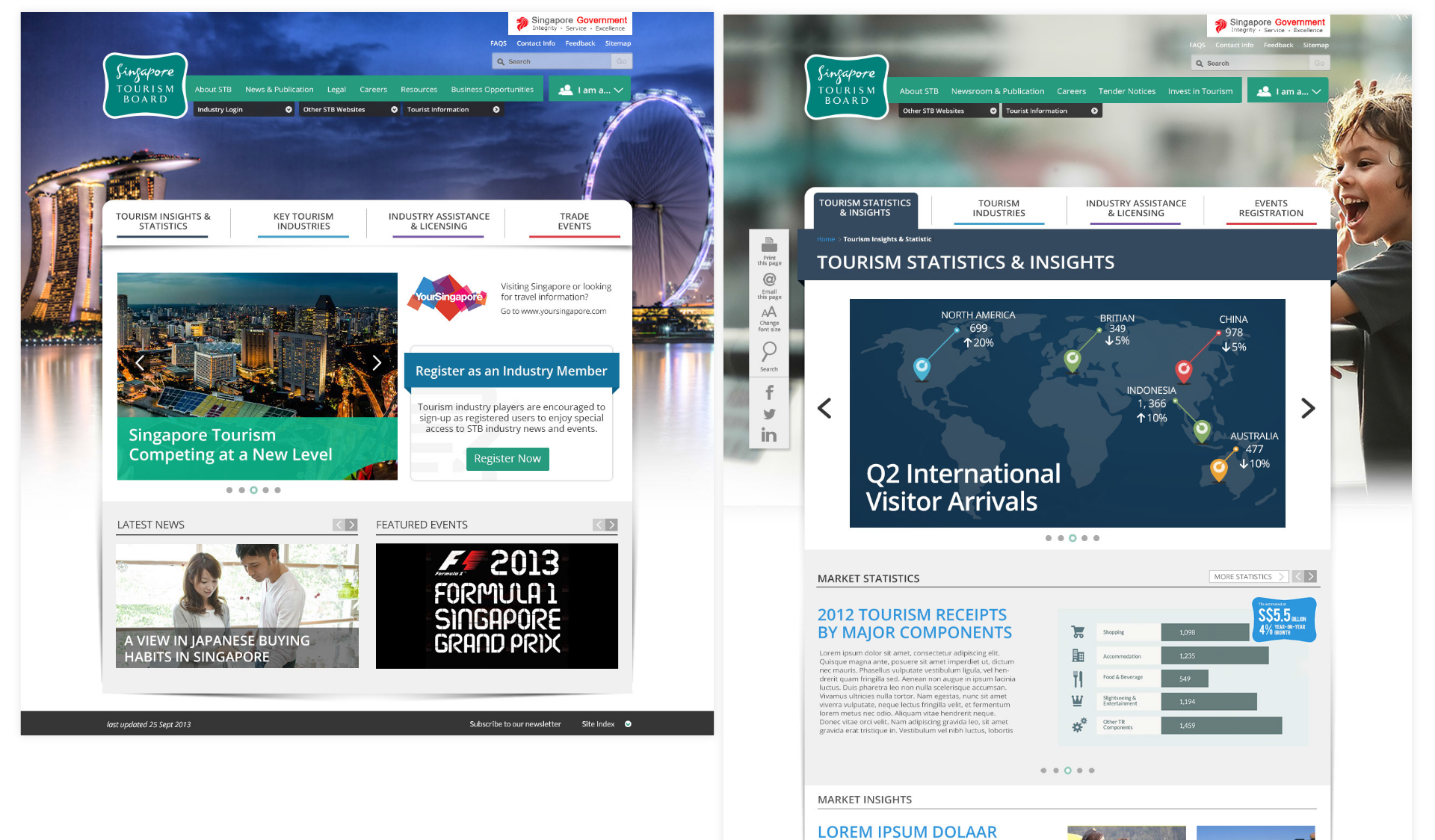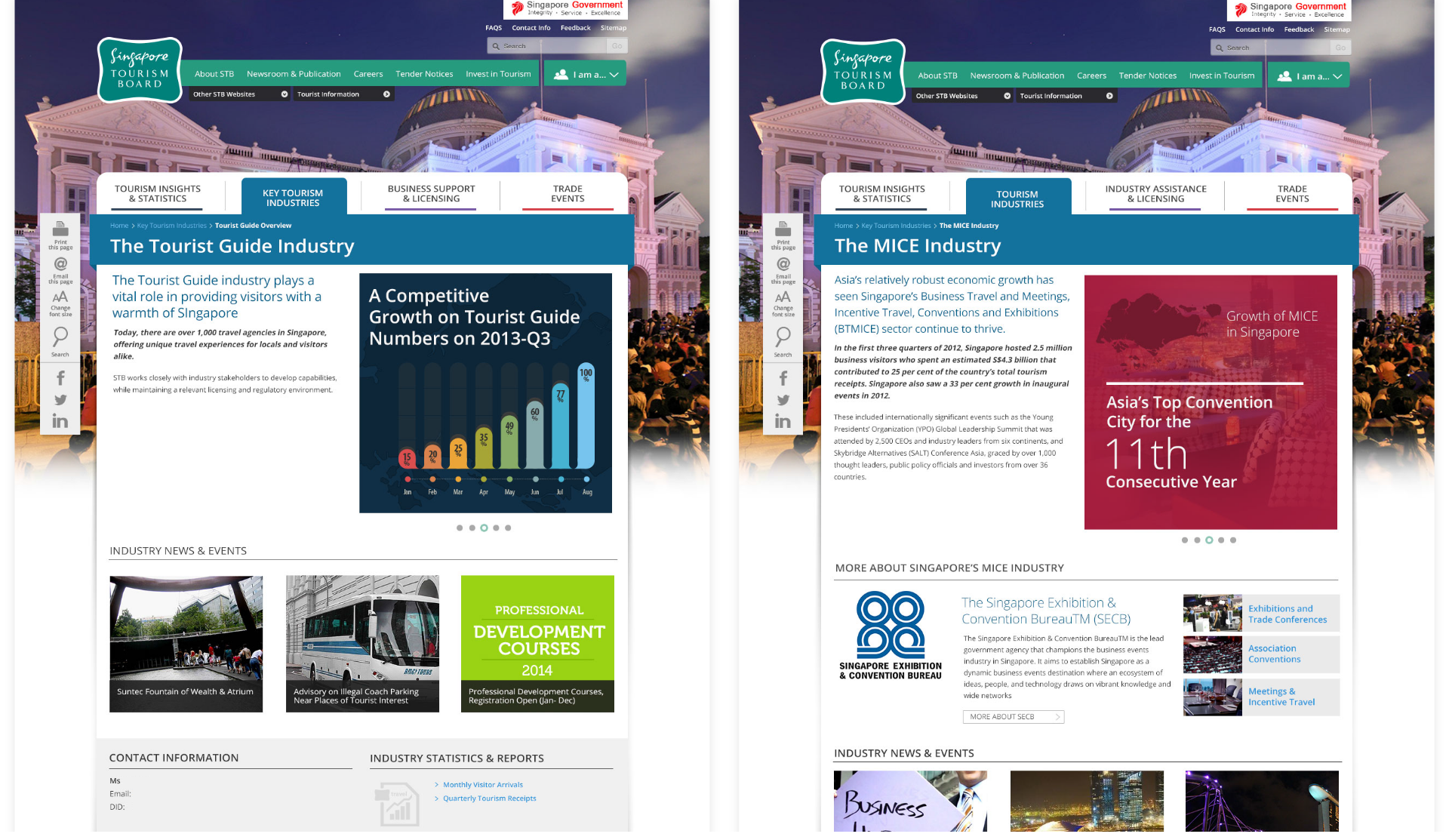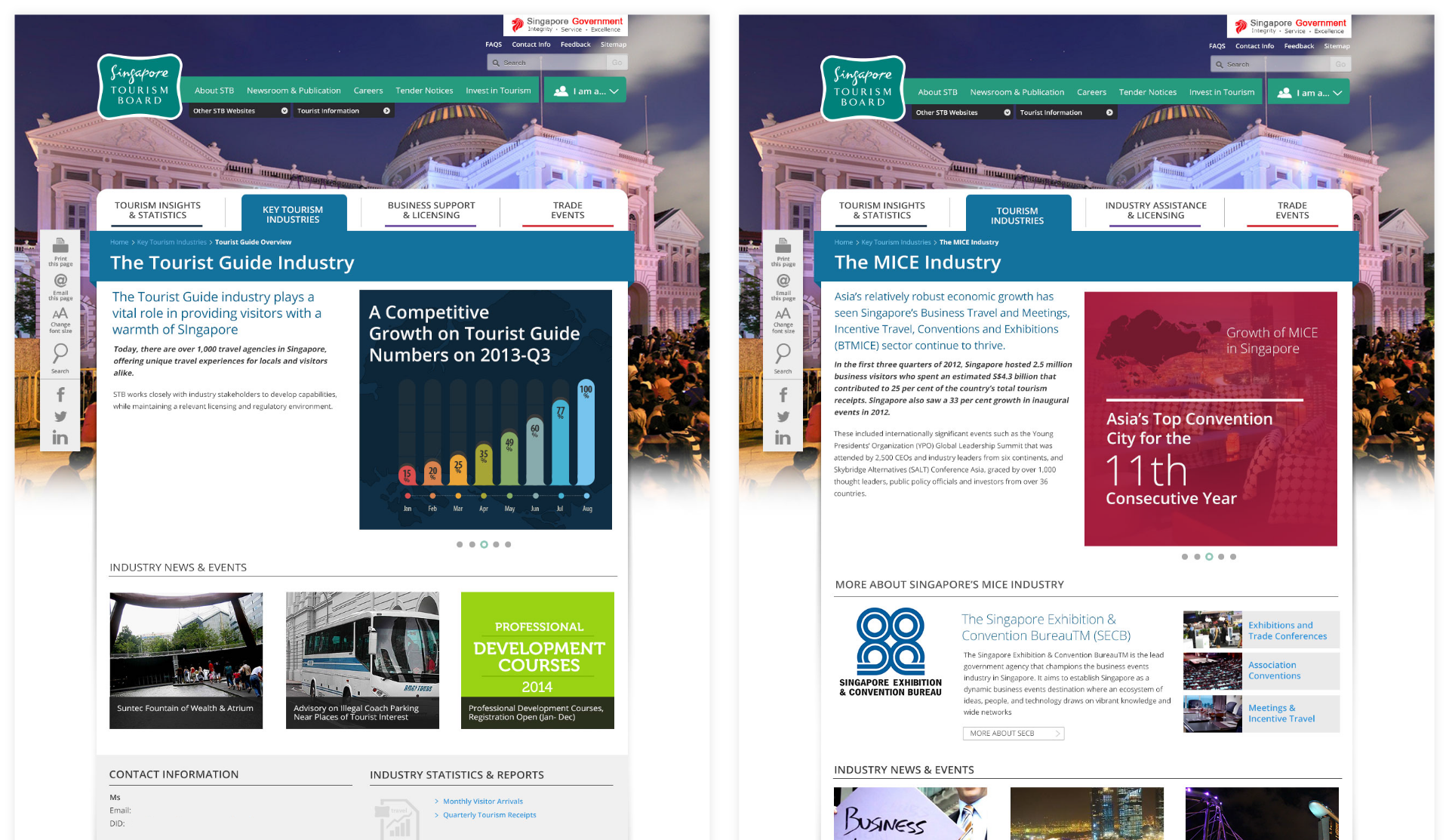Singapore Tourism Board
Singapore Tourism Board website revamp
Problem and solutions
The Singapore Tourism Board (STB) considered a website revamp for several reasons, including:
- Improving navigation, layout, and overall design to enhance user experience.
- Updating content to ensure it is accurate, relevant, and engaging for visitors.
- Enhancing the visual appeal of the website to better showcase Singapore’s attractions, culture, and experiences.
- Optimizing the website’s content and structure to improve its visibility in search engine results.
- Incorporating new features and functionalities to enhance the overall user experience.
- Ensuring the website is responsive across various devices and screen sizes. This is essential for catering to the growing number of users accessing the internet through mobile devices and tablets.
- Optimizing website performance to improve speed, reliability, and scalability. This could involve optimizing code, leveraging caching techniques, and upgrading hosting infrastructure to ensure fast and seamless user experience.
- Staying ahead of competitors by offering a modern, visually appealing, and user-friendly website that effectively promotes Singapore as a premier tourist destination.
- Ensuring the website complies with accessibility standards to make it inclusive and accessible to all users, including those with disabilities.
- Implementing robust analytics and tracking mechanisms to gather insights into user behavior, preferences, and engagement metrics.
Process
Revamping the Singapore Tourism Board (STB) website involved several steps to ensure a successful and effective transformation.
Research and Analysis:
- Conducted user research to understand the needs, preferences, and behaviors of the target audience.
- Analysed existing website metrics, such as bounce rates, session durations, and user journeys, to identify pain points and areas for improvement.
Define Goals and Objectives:
- Determined clear goals and objectives for the website revamp, aligned with STB’s overall mission and strategic objectives.
- Identified key performance indicators (KPIs) to measure the success of the revamp, such as increased user engagement, improved conversion rates, and higher satisfaction scores.
UX Design and Wireframing:
- Developed wireframes and prototypes based on user research findings and identified goals.
- Designed user-friendly navigation structures, ensuring intuitive pathways to key information and attractions.
- Created mockups and design concepts that incorporate STB’s branding guidelines and visual identity.
Content Strategy:
- Developed a comprehensive content strategy that aligns with user needs and supports STB’s marketing objectives.
- Created high-quality, engaging content that showcases Singapore’s attractions, experiences, and culture.
- Ensured content is structured logically and presented in a visually appealing manner to enhance user engagement.
Visual Design:
- Designed visually appealing interfaces that reflect Singapore’s vibrant and diverse tourism offerings.
- Incorporated high-quality images, videos, and multimedia elements to create an immersive user experience.
- Used consistent design elements and branding across all pages to maintain coherence and reinforce STB’s identity.
Responsive Design and Accessibility:
- Ensured the website is fully responsive and accessible across various devices and screen sizes.
- Implementded accessibility features and adhere to web accessibility standards (e.g., WCAG) to make the website inclusive and accessible to all users, including those with disabilities.
User Testing and Iteration:
- Conducted usability testing with representative users to gather feedback on the website’s usability, navigation, and overall user experience.
- Iterated on design and content based on user feedback, making improvements to address pain points and enhance user satisfaction.
Launch and Promotion:
- Planned and executed a coordinated launch strategy to promote the revamped website and generate excitement among users.
- Leveraged STB’s marketing channels and partnerships to drive traffic to the new website and encourage user engagement.
- Monitored website performance post-launch and make any necessary adjustments to optimize user experience and achieve desired outcomes.




